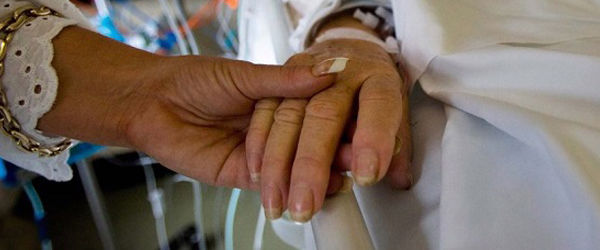There was the lay woman who travels to rural areas in Haiti and Dominican Republic to lend support in education and health; the Discalced Carmelite chaplain of a local hospital who sends his salary to support the poor and his congregation in India; the Crosier priest who has spent decades in Congo and other poor countries; and the member of a Guatemalan religious community that has expanded to other nations, including the United States.They were part of a group of 117 missionaries recently visiting the Archdiocese of Los Angeles to raise awareness of the needs of the poor in underdeveloped countries and to seek financial support from the local Catholic community. They were selected by the archdiocesan Mission Office through the Mission Cooperative (Mission Co-op), a summer program sponsored by the Pontifical Mission Societies in the United States.“We had amazing responses!” exclaimed Father Gorantla Johannes, provincial superior of the Discalced Carmelites in Andhra Pradesh, an area in India with growing vocations in the midst of extreme poverty. The Carmelites operate more than 30 orphanages in the area. “I always tell people that ‘your mission is my mission’; we are continuing the mission of Christ to feed the hungry and heal the sick,” he said during an Aug. 29 farewell dinner at St. Brendan Church where the missionaries had the opportunity to meet each other and share their experience.At 37, Father Johannes was the first Carmelite to start a mission in the area of Andhra Pradesh (and the youngest provincial in the history of the Carmelites in that area). He is also the head of the Conference of Religious Men, comprised of 50 provincials. Visiting L.A. for the first time, he was invited to concelebrate and speak during three weekend Masses at Assumption Church in L.A., Sts. Peter and Paul in Wilmington, and Mary Star of the Sea in San Pedro, where he addressed parishioners in fluent English, Spanish and Italian. Echoing the sentiment of all the missionaries, he said he was leaving with a great impression of Americans. Other missionaries invited this year included retired Archbishop Austen Crappe of Papua New Guinea, who made an appeal at St. Lawrence Martyr Church in Redondo Beach; Crosier Missionary Father Robert Rossi, a former missionary in Congo, Indonesia and Brazil; Miles Jesu Father Thomas Cahill, a Beverly Hills native and longtime missionary in India; Marco Svoboda, from Hand of Help Service, a program that provides mentorship to young adults through Neuman Centers and parishes; and Missionary Sister of St. Columban Carmen Maldonado, a missionary in several countries for more than two decades.“People in the Archdiocese of Los Angeles are well-receiving, regardless if you’re a lay or religious missionary,” added lay missionary Monica Lauzurique, associate director of Amor en Acción (Love in Action), a volunteer-based nonprofit in Miami, Florida, that helps build clean water sources, and develops educational and nutritional projects in Haiti and the Dominican Republic.The organization, whose membership is mostly comprised of college students and retirees, also advocates for the increasing undocumented population in the Dominican Republic, where children with no legal status are not allowed to attend public schools and families cannot afford private schools.For generations, Lauzurique explained, women in rural areas prefer giving birth to their children at home; if they use hospital services, they have to pay $30 for a birth certificate. “It’s either paying for the certificate or starving,” Lauzurique said. A large percentage of the undocumented are also Haitian immigrants working for American-owned or government-run sugar companies. Sugar is one of the main sources of income of the island, the second-largest Caribbean producer of sugarcane after Cuba.With difficulty, Amor en Acción has managed to form a pool of local attorneys who work pro bono advocating for new immigration laws and helping the undocumented. “We are so happy and proud to support these missionaries,” said Lydia Gamboa, Mission Office associate director. “Mission is what the Church is about; that’s what we were baptized for.”“You are an example to us,” Father Ken Deasy, consultant to the Holy Childhood Association, told participants at the Aug. 29 dinner. “While we worry on how we are going to make it to heaven, you worry on how to get through the night.” Application processDecember 1 is the annual deadline for candidates to the Mission Cooperative Program. The process starts with the submission of an application which is reviewed by the archdiocesan Mission Office including its director, Msgr. Terrance Fleming. Applicants must have some connection to the archdiocese, either through their work with local parishes or through their work in countries supported by the Mission Office. They must also document their good standing with the local diocese. (This year the Mission Office received about 400 applications and approved 117, up from 104 in 2010.)Once they are chosen, the missionaries are assigned to parishes. Criteria include ethnicity compatibility, language fluency or pastors’ request. Visiting dates are coordinated with all the parties involved.There is no limit for re-application, although there is preference for new applicants or for those whose visit is requested by a local pastor. Although not required, many of the visitors send updates of the activities or projects they have developed with the financial support they have received. L.A. pastors are asked to submit a written evaluation of the missionary’s visit and its impact on the parish.For more information, call the archdiocesan Mission Office, (213) 637-7223, email [email protected] or visit www.missionsla.org.{gallery width=100 height=100}gallery/2011/0916/missions/{/gallery}

